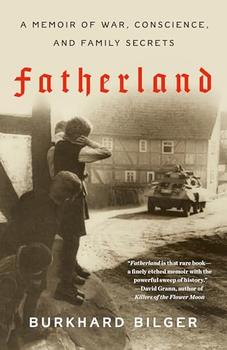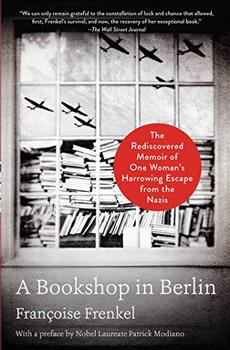Summary | Excerpt | Reviews | Beyond the book | Read-Alikes | Genres & Themes | Author Bio

During World War II, French villagers offered safe harbor to countless strangers - mostly children - as they fled for their lives. The same place offers refuge to migrants today. Why?
In a remote pocket of Nazi-held France, ordinary people risked their lives to rescue many hundreds of strangers, mostly Jewish children. Was this a fluke of history, or something more? Anthropologist Maggie Paxson, certainties shaken by years of studying strife, arrives on the Plateau to explore this phenomenon: What are the traits that make a group choose selflessness?
In this beautiful, wind-blown place, Paxson discovers a tradition of offering refuge that dates back centuries. But it is the story of a distant relative that provides the beacon for which she has been searching. Restless and idealistic, Daniel Trocmé had found a life of meaning and purpose--or it found him--sheltering a group of children on the Plateau, until the Holocaust came for him, too. Paxson's journey into past and present turns up new answers, new questions, and a renewed faith in the possibilities for us all, in an age when global conflict has set millions adrift. Riveting, multilayered, and intensely personal, The Plateau is a deeply inspiring journey into the central conundrum of our time.
Paxson's personal reflections sometimes turn outward into sweeping and confusing assertions about humanity when it seems they might have more naturally continued inward into analysis of her own struggles. For example, she expresses concern about the "moral hazard" of identifying as a member of any group before identifying as human, stating that "the oneness of humanity is an absolute truth." It seems important to acknowledge, alongside this statement, that groups in power have often used people's religious and ethnic identities as reason to treat them inhumanely...continued
Full Review
(1114 words)
This review is available to non-members for a limited time. For full access,
become a member today.
(Reviewed by Elisabeth Cook).
 Righteous Among the Nations refers to non-Jewish people who have been honored by Yad Vashem, The World Holocaust Memorial Center in Israel, for putting their lives at risk to help Jews at the time of the Holocaust. Yad Vashem set up a commission in 1963 to establish the criteria for the award and examine cases to determine recipients of the title. Since then, Yad Vashem has given the title of Righteous to over 27,000 individuals from over 50 countries. The Israeli government grants honorary citizenship to the Righteous, and organizations such as the Jewish Foundation for the Righteous offer assistance to surviving Righteous who experience economic hardship.
Righteous Among the Nations refers to non-Jewish people who have been honored by Yad Vashem, The World Holocaust Memorial Center in Israel, for putting their lives at risk to help Jews at the time of the Holocaust. Yad Vashem set up a commission in 1963 to establish the criteria for the award and examine cases to determine recipients of the title. Since then, Yad Vashem has given the title of Righteous to over 27,000 individuals from over 50 countries. The Israeli government grants honorary citizenship to the Righteous, and organizations such as the Jewish Foundation for the Righteous offer assistance to surviving Righteous who experience economic hardship.
Yad Vashem names individuals as Righteous who meet four requirements:
This "beyond the book" feature is available to non-members for a limited time. Join today for full access.

If you liked The Plateau, try these:

by Burkhard Bilger
Published 2024
A New Yorker staff writer investigates his grandfather, a Nazi Party Chief, in this "unflinching, gorgeously written, and deeply moving exploration of morality, family, and war" (Patrick Radden Keefe, author of Empire of Pain).

by Francoise Frenkel
Published 2020
"A beautiful and important book" (The Independent) in the tradition of rediscovered works like Suite Française and The Nazi Officer's Wife, the prize-winning memoir of a fearless Jewish bookseller on a harrowing fight for survival across Nazi-occupied Europe.
What really knocks me out is a book that, when you're all done reading, you wish the author that wrote it was a ...
Click Here to find out who said this, as well as discovering other famous literary quotes!